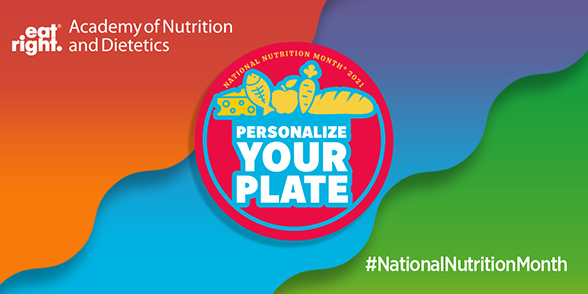Many homebound older adults do not receive adequate balanced meals, which are essential for managing chronic conditions such as diabetes and are vital for disease prevention. Unfortunately, proper nutrition and diet sometimes take a backseat to other steps in disease management. The body needs to receive the right balance of calories, vitamins, minerals, enzymes, fats, and proteins from food to function well. Food as medicine is not a new concept, but a good diet should be taken seriously and be a top goal to help ensure a better quality of life.
Food is Medicine for Managing Chronic Illness
Posted by Maureen Garner, MS, RD, LD on Jan 25, 2022 10:00:00 AM
Topics: Nutrition, Heart Disease, Sodium, Healthy Home Delivered Meals, Post Discharge
Expecting a baby can be a very joyful time! However, it can also be stressful for women with pre-existing conditions or other conditions that may develop during pregnancy. Fortunately, a health plan can take steps to help to ensure a healthy pregnancy and delivery for its high-risk members.
Receiving proper prenatal care is the first step. Regular visits to an obstetrician are necessary to ensure good fetal development and the health of the mother.
One way to stay healthy is through a proper diet. Good nutrition during pregnancy can lower the risk for poor maternal and child outcomes, including low birth rates and premature delivery. Healthy meals are vital for those who experience high-risk pregnancies, including those managing gestational diabetes and pre-eclampsia.
Proper maternal health is essential for:
- Healthy blood pressure, weight, and wellness
- Reducing preterm labor
- Avoiding NICU admissions
- Overall lower maternal pre and postnatal costs
Medical Nutrition Therapy
Some health care plans may offer their members telehealth Medical Nutrition Therapy. These sessions partner women with a Registered Dietitian (RD) during pregnancy and when they return home from the hospital. The RD will educate the member in selecting, preparing, and eating appropriate food for their condition. They can also recommend a medically tailored meal plan to fit the unique prenatal and postnatal needs. Medically tailored meals help to manage existing conditions to treat those that can occur during pregnancy.
Common chronic conditions that may occur during pregnancy are:
- Diabetes
- Hypertension
- Cardiovascular Disease
- Obesity
Offering a home-delivered meals program to expectant mothers is a simple way to address the Social Determinants of Health, including food insecurity, help to encourage breastfeeding, and reducing preterm births. Providing nourishment to high-risk mothers can help reduce NICU and overall healthcare costs.
Click below to learn more about GA Foods' KickStart Maternal Health program.
Topics: Nutrition, Social Determinants of Health, Maternal Health, Chronic conditions, Healthy mothers
Many vaccinated older adults are ready to get back out in the world! After more than a year of isolation and quarantine, it may be challenging to know where to begin.
Topics: Nutrition, Medicare Advantage, healthy eating
Time To Celebrate National Nutrition Month!
Posted by Alexandria Hadley, MS, RD, LD on Mar 4, 2021 11:00:00 AM
National Nutrition Month® is a nutrition education, and information campaign celebrated every March by the Academy of Nutrition and Dietetics. You can significantly impact your overall health by making small changes in your eating and physical activity routine.
Topics: Nutrition, Home Delivered Meals, healthy eating

Counting the number of candles on a birthday cake is not as important as appreciating each year of life! Each year brings new experiences, challenges, and accomplishments.
Topics: Nutrition, Aging Well, Older Adults, Medicare Advantage
If you have a loved one in the hospital, you may not know how to prepare for their return home. After a hospital stay or surgery, it is essential to be in comfortable surroundings and to follow all discharge instructions to help in the recovery process.
Topics: Nutrition, Home Delivered Meals, Post Discharge, aging in place, Older Adults, Medicare Advantage
Aging might be out of our control, but aging better is something we should all have a handle on. And with more access than ever to technology, nutrition and medical care that is helping everyone to live longer, it’s never been easier to embrace it.
Topics: Nutrition, Senior Health, Aging Well
Time to Celebrate National Nutrition Month!
Posted by Maureen Garner, MS, RD, LD on Mar 7, 2019 10:28:00 AM
National Nutrition Month® is a nutrition education, and information campaign celebrated every March by the Academy of Nutrition and Dietetics. The campaign focuses attention on the importance of making informed food choices and developing sound eating and physical activity habits. You can make a significant impact on your overall health by making small changes in your eating and physical activity routine.
Topics: Nutrition, National Nutrition Month
Offering Choice to Older Adults Yields Positive Results
Posted by Maureen Garner, MS, RD, LD on Sep 26, 2018 11:07:14 AM
As people age, the ability to remain independent in their homes and make decisions regarding their care may diminish. The causes may be due to physical reasons such as medical conditions or cognitive dysfunction. Social determinants of health, like safety in the home, community support, or economic status, also impact an older person’s autonomy and quality of life.
Topics: Nutrition, Senior Nutrition, Baby Boomers
It’s Back-to-School Season 2018! This is the time of the year when parents are bombarded with… well, everything! Between school supply lists, new school clothes or uniforms, teacher meet and greets, first day photos, and finding the perfect backpack, the last thing on a parent’s mind is packing a healthy lunch. Meals at school are essential to student health and well-being. They ensure that children have the nutrition they need to learn.
My son was a picky eater and always at the bottom of the weight percentile on his growth chart. As a Registered Dietitian, I thought I could make him healthier lunches from home. But studies have shown that school meals are healthier than meals from home. School meals are rich in lean proteins, whole grains, fruits, and vegetables. School meals also limit unhealthy fats and sodium.
Topics: Nutrition, Child Nutrition















